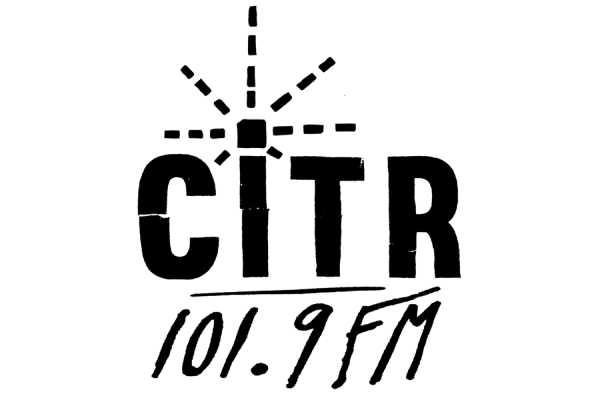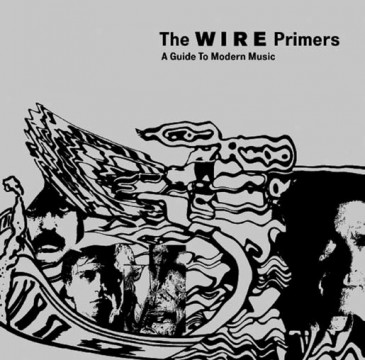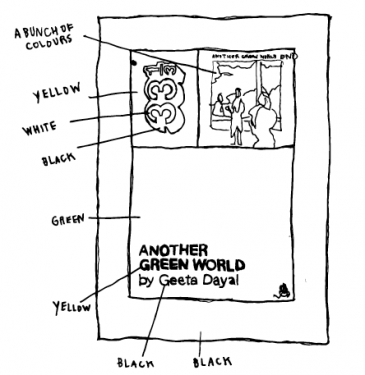The Best of the Beta Band:
Music
(Astralwerks)
It was a shock to many that the Beta Band, after eight years of puzzling ears and confounding expectations, broke up this year after their fourth album, Heroes to Zeroes, proving once and for all that not even hype from the NME can sell that many records. Reasons for the demise ranged from the coherent (“little return in terms of commercial success inevitably takes its toll”) to the typically vague (“the Beta Band apple has over-ripened and become riddled with maggots, it must fall from the tree and let its seeds return to the ground.”) Coupled with the fact that Heroes to Zeroes, despite its critical failings, was their most popular album, the true reason for their breakdown remains ambiguous. Enter post-mortem best of collection: The Best of the Beta Band combines efforts from the band’s catalogue (and also blends all four album covers into one monstrous, exploding, logo-riddled gloom-scape). It courageously takes on what seems like an impossible task: to cull sixteen tracks from a career that covered lo-fi indie rock, trip hop, and an indescribable kaleidoscope of country and dub reggae, while maintaining the cohesiveness that these retrospectives require. Just on the overwhelming strength of the songs themselves,
the album succeeds. By supplying the listener with the bulk of their greatest work (check “Dry the Rain,” “She’s the One,” “It’s Not Too Beautiful,” among many others) the record offers a crash-course in a band that most people are criminally uneducated in. But The Best of the Beta Band: Music predictably suffers where most compilations do. By not giving the listener the context within which the songs originally appeared, the daring experimentalism that made
the Beta Band such an exciting and important band is lost. The whole package gives you the strange feeling of reading some incomplete novel. Though the
music is undeniably consistent, it all hints at a master plan that fell tragically short. On its own, The Best of the Beta Band: Music is a rollercoaster of sounds, and for the impatient listener, it’ll probably give you the idea. But as a whole, it isn’t the Beta Band that I knew, and it just doesn’t seem like an appropriate last gasp for these star-crossed pioneers.
Mike LaPointe
Francoiz Breut
Une Saison Volee
(Olympic Disc)
It’s always difficult waiting for one of your favorite artists to release new material, especially when it’s been five years. Une Saison Voilé, Francoiz Breut’s newest and third release was worth the wait. Francoiz has come a long way from singing back-up vocals for French alt.
pop star Dominique Ane. Her self titled debut Francoiz Breut (1997) and her second release Vingt a Trente Mille Jours (2000) showed a steady maturation in her music, as she established her own identity apart from Ane. Picking up on the French vocal (chanson) tradition established by Edith Piaf, Serge Gainsbourg and Francoise Hardy and combining it with multiple musical references embellished with a Tom Waits- like quirkiness, she has quickly defined her own identifiable sound. Francoiz’s singing has a straight forward authenticity that carefully balances a degree of vulnerability and complete self-assuredness. “Overall” is the stand out track. Sung in English with the help of Calexico’s Joey Burns (Calexico had previously covered Breut’s “Si Tu Disais” on the Convict Pool release) this
powerful duet is spine chilling and reminiscent of Excene Czervenka and John Doe of X and Knitters fame. Sung in Italian, “Ultimo” displays a cinemagraphic flare that recalls Morricone. Bit it’s when Francoiz sings in her native French the full range of her vocal repetoire unfolds. “La Vie Devant Soi” is a delightfully breezy Latin-tinged
number. In a more traditional Piaf inspired vein “Le Premier Bonheur” mournfully drifts with heavy film noir intensity. To highlight these few tracks, though, does a disservice to the remaining songs, all of which are excellent. Francoiz Breut is a master of beautifully crafted
musical narratives, effortlessly referencing multiple styles but unmistakably unique.
pcs
Christopher Bissonnette
Periphery
(Kranky)
I met Bissonnette at the Mutek festival in Montreal a couple of years back. He was performing as one of numerous members of the media collective Thinkbox, who had recently released Guitar, a group meditation on the instrument via manipulation of pre-recorded audio. Thinkbox, who boast members from both Windsor and Detroit, is everything NAFTA isn’t; an easy and fair playground exchange without the sandbox bully. Watching Thinkbox live was
like a summit meeting between audio academics exchanging ideas via their numerous sonic sound tools. On his Kranky debut Bissonnette is taking his Thinkbox philosophy of live electronic experimentation to work by recording and mixing Periphery live using randomized audiopatches. Sweating the little things, Periphery is an album of subtleties and ambience. Bissonnette’s process of making his immersive sound is carried out via extensive sample manipulation of piano and orchestral work, resulting in textures unrecognizable from their source. The soothing sound of static-like audio provides a base to much of the work on Periphery, inspiring the listener to turn the volume high to fully appreciate all the sound that can heard between the audio
snowflakes. Like all good ambient music Bissonnette’s pieces draws the listener in by their emotive powers; making the ears attuned to each tonal variation.
Periphery isn’t going to put much money in Kranky or Bissonnette’s bank accounts. It probably won’t even make that many reviewers’ top 10 lists either. This isn’t that kind of record. Periphery is just that, an album that focuses on the sounds not normally listened to. What Periphery will do if you give it the chance is expose those who don’t know the realms of modern ambient music to a world where less is more. Who knows, the manipulated pop of static on microphone might just be the hook you were looking for.
Robert Robot
Luke Doucet
Broken (and other rogue
states)
(Six Shooter Records)
Luke Doucet, former front man of the band Veal, has gone solo. Does this entitle him to take himself very, very seriously? Apparently so, because he’s put out thirteen tracks of morosely weird, selfimpressed, over-produced shit. The whole enterprise is wretched with shallow cliché, incongruent artistry, and self-conscious, broken-hearted egotism. Don’t believe me? Check out the blog on his website for daily updates on what he thinks of himself (www.lukedoucet.com). Here’s one song title as an example of what I’m talking about: “If I drop names of exotic towns that you’ll never see, in the songs that I write, it’s that that’s all I have when I miss my girl and you’re taking yours home tonight”. You fucking wish I made that one up. This is the kind of thing
makes me ashamed to be Canadian. Nobody told this guy, when he needed to be told, that he can’t sing, that he writes boring songs, and that he is not
Johnny Cash. Now he thinks he’s fucking Nick Drake on Jim Beam and is already halfway to the Junos. Thanks a lot, Ontario Arts Council. I want my tax dollars
back.
Jon Fleming
The Knitters
The Modern Sounds of the Knitters
(Zoe Records)
What is it about California punk that leads to such great country music? I don’t know, but this album is my new favorite example of this phenomenon. Beginning in the mid 80s as a side project of X, The Knitters (made up of Exene, Doe, Bonebrake, rockabilly revivalist/label mates Dave Alvin and Johnny Ray
Bartel) released “Poor little Critter on the Road” in 1985. The Modern Sounds … is their first record since, a beautiful amalgamation of LA punk, 50s rock and roll, and traditional American music. It will satisfy punk fans, X fans, country fans, whatever. Every member in this group is energized, complimented, and contrasted by the other. The classic binary of tension and adoration between Exene and John Doe is still fresh and evolving here: their voices are full and brash and seem to know exactly how to come together in perfect meetings of harmony and discord, just as they write songs. Dave Alvin is a superb guitarist: slightly similar to Billy Zoom but with more of a penchant for discreet soloing, with lots of rattling moments of twanging honky tonk, and surf-like reverb. The drums are sometimes rocking and sometimes whispering; the upright bass is rich and percussive. Everything is perfectly balanced: sincere and simple, fervent and humble. The songs are a pleasing mixed bag of originals, X classics, and select covers of country and traditional material. The re-recordings of “in this house that I call home” and “burning house of love” are outstandingly good. John Doe’s “Try Anymore (Why Don’t We Even)” evokes perfectly the spirit of a song like “When Our Love Passed Out on the Couch,” but in a slower, waltzing shuffle. Alvin’s “Dry River” is a telling analogy of heartbreak
in the context of the LA that existed before the prevalence of scripts and silicone. The traditional material present on this album is very strong, from the lovely “Give Me My Flowers While I’m Living” to the strange beauty of the ballad “Little Margaret”. The country and bluegrass covers are reverently astute, from Bill Anderson’s “I’ll go down swinging” to the overwhelming, almost violent loneliness of Albert E. Brumley’s “Rank stranger.” Lastly, there is a tribute to Steppenwolf’s “born to be wild” which, though odd, still rocks.
Jon Fleming
Propaghandi
Potemkin City Limits
G7 Welcoming Committee
(Canada)
Propaghandi has served up another soundtrack for your rebellion. Sticking to their tried and true progressive-thrash-meets – p r o g r e s s i v e –
a c t i v i sm formula, the Winnipeg trio’s latest offering won’t surprise you so much as renew your vigour for making the world a better place (if you’re down with their politics). For Propaghandi, that better place would be a world minus the sexism, war, racism, and economic inequity we’re mired in, as Potempkin City Limits conspicuously reminds us. From songs about colonial oppression (“Bringer of Greater Things”), the mainstreaming of punk (“Rock for Sustainable Capitalism”), and war in the Middle East (“Name and Address Withheld”), to the liner notes directing readers to a batch of indie news sites, Potempkin City Limits’ anger is firmly rooted in the present tense. I’m still more of a sucker for the poetical stylings of the band’s John K. Sampson (1993’s How to Clean Everything and 1996’s Less Talk More Rock) era, but I’d say this album nicely fits the band’s mandate of “thrashing the planet into humane submission.”
Alison B
Neil Young
Prairie Wind
(Reprise)
Let me set the record straight: I am a huge Neil Young fan. In the years since I discovered his music, he has done more for my soul that most other artists. I don’t have nearly enough space to put into words just how important he is, to me personally, and to the rock genre in general. This is why it makes me particularly upset to listen to Prairie Wind, his latest record. To me, it’s the sound of Neil resting on his laurels. I could be hearing wrong, but I just can’t detect the passion to which I’m so accustomed. I think to myself, “Who the hell am I to criticize Neil Young?” He has given me so much, and here I am, backlashing. But I can’t help it. I’m just disappointed and heartbroken that I don’t hear something even remotely vital on this new album. I can’t start using the excuse that it’s all relative, that when artists get older, they lose their mojo, and that should be taken into consideration. Fuck that. Look at Bob Dylan: his last two albums were brilliant, arguably better than most of his 80s output. Look at Johnny Cash: you want to talk about a renaissance? But that’s
Dylan, you say. That’s The Man In Black, you say. I would not hesitate for a moment in placing Neil Young in the same category as those two. Listen to Tonight’s the Night, or On the Beach, or even Harvest Moon (the latter being the supposed predecessor in theme to Prairie Wind), and tell me that this is still a good album. More than that, tell me he isn’t capable of so much better. I believe he is, and always will be able to make great music. I’ll put Prairie Wind away, perhaps to collect dust, but I know that its place in my CD player will someday soon be taken by a new red-blooded, introspective, fiery, Neil Young record—just the way I like ‘em.
Robert Ferdman




